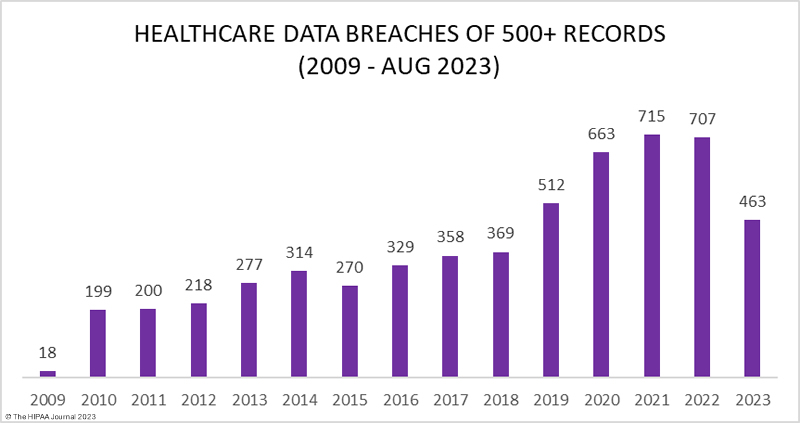In the digital age, data is king, and the healthcare industry is no exception. The way healthcare is provided and administered is being transformed by a process called health data exchange, which involves the electronic sharing of patient medical information between various healthcare organizations. This innovation is paving the way for a brighter, more efficient future in the healthcare sector.
The Importance of Health Data Exchange
1. Enhancing Patient Care
One of the most significant advantages of health data exchange is its impact on patient care. When healthcare providers have access to a patient’s complete medical history, including diagnoses, treatments, and medications, they can make more informed decisions. This results in better-coordinated care, fewer medical errors, and ultimately, improved patient outcomes.
According to a study published by the Office of the National Coordinator for Health Information Technology (ONC), in the United States, 96% of non-federal acute care hospitals had adopted certified health IT systems by 2018. This technology facilitates the exchange of electronic health records (EHRs) and promotes safer and more efficient patient care.
2. Reducing Healthcare Costs
The healthcare industry is notorious for its high costs. Health data exchange, by streamlining administrative processes and reducing duplication of tests and procedures, has the potential to significantly reduce healthcare expenses.
The Healthcare Information and Management Systems Society (HIMSS) reported that effective health data exchange can save approximately $1.6 million annually for a typical 250-bed hospital. These cost savings result from eliminating manual data entry, reducing paperwork, and preventing redundant medical tests.
3. Accelerating Research and Innovation
Health data is a valuable resource for medical research and innovation. With a wealth of patient data at their disposal, researchers can identify trends, study disease patterns, and develop new treatments. Health data exchange facilitates data sharing among research institutions, enabling collaborative efforts to advance medical knowledge.
According to the National Institutes of Health (NIH), the All of Us Research Program aims to collect health data from one million or more participants to accelerate research and improve health. This extensive data-sharing initiative could lead to groundbreaking discoveries and innovations in healthcare.
The Challenges of Health Data Exchange
While health data exchange offers immense potential, it is not without its challenges. Privacy concerns, interoperability issues, and security risks have been significant obstacles to its widespread adoption.
1. Privacy Concerns
Patient data security is a paramount concern in healthcare. Patients worry about their sensitive health information falling into the wrong hands. To address these concerns, strict regulations like the Health Insurance Portability and Accountability Act (HIPAA) have been put in place.

According to a survey by the Pew Research Center, 64% of Americans have concerns about the security of their medical data. This highlights the need for robust data protection measures in health data exchange.
2. Interoperability
Interoperability is a major technical challenge in health data exchange. Healthcare systems and EHRs often use different standards and formats for data storage, making it difficult to share information seamlessly. This fragmentation hinders the effective exchange of health data.
The Healthcare Information and Management Systems Society (HIMSS) reports that achieving interoperability is a top concern for healthcare IT professionals. Efforts are underway to develop common standards and protocols to improve data sharing.
3. Security Risks
The rise of digital health data exchange has also raised concerns about data breaches and cyber threats. Protecting patient data from unauthorized access is critical. The HealthIT.gov website reports that healthcare organizations are a prime target for cyberattacks.
A 2021 report by Protenus and DataBreaches.net found that there were 642 healthcare data breaches in the United States, affecting more than 30 million patient records in 2020. These statistics underscore the need for robust cybersecurity measures in health data exchange systems.
The Future of Health Data Exchange
Despite the challenges, the future of health data exchange looks promising. The following developments and trends are shaping the future of healthcare data sharing:
1. Blockchain Technology
Healthcare is exploring blockchain technology, known for its security and transparency, to address data privacy and security concerns. It can provide a decentralized and tamper-proof ledger for storing health records, giving patients greater control over their data.
2. Artificial Intelligence (AI) and Predictive Analytics
Healthcare organizations are employing AI and predictive analytics to make sense of the vast amount of health data. Machine learning algorithms can identify patterns, predict disease outbreaks, and offer insights for personalized treatment plans.
3. Patient Empowerment
Patients are increasingly becoming active participants in their healthcare journey. Healthcare providers are being promoted to access and share their health data with patients by patients who are taking advantage of health apps, wearables, and online portals.
4. Global Data Exchange
Efforts are underway to create international health data exchange networks. These initiatives aim to facilitate the sharing of health information across borders, which is particularly valuable in the case of medical emergencies and pandemics.
Conclusion
Health data exchange is revolutionizing healthcare by enhancing patient care, reducing costs, and accelerating research and innovation. However, challenges such as privacy concerns, interoperability, and security risks must be addressed to fully realize its potential.
As we move forward, technology advancements like blockchain, AI, and patient empowerment are poised to reshape the landscape of health data exchange. The future of healthcare promises a more interconnected, data-driven, and patient-centric approach to delivering and managing medical care.
We can unlock the full potential of health data exchange, ushering in a new era of healthcare that is more efficient, cost-effective, and patient-focused by embracing these innovations and addressing the challenges.








